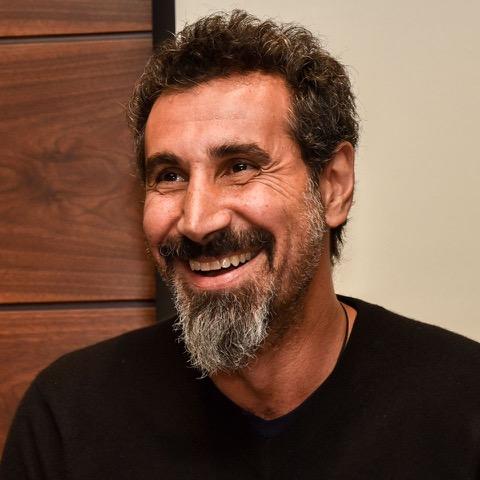By Michael Melkonian
Special to the Mirror-Spectator
LOS ANGELES – Serj Tankian, a revolutionary musician, founding member and lead singer of one of the most iconic bands of modern rock, System of a Down, has started to transition to full-time Armenian philanthropy and activism. Tankian, an Armenian born in Lebanon and raised in Los Angeles, California, has been a staple of the Armenian community for quite some time. System of a Down was one of the most known bands in the world in the early 2000s, having sold over 40 million records while garnering MTV nominations and wins along with multiple Grammy nominations and a Grammy win for Best Hard Rock Performance in 2006.
This type of success made him a role model with a cult following around the world, including within the Armenian community, but Tankian’s influence didn’t stop there. Most famously, Tankian was involved in the recent Armenian Velvet Revolution, which encouraged acts of peaceful civil disobedience by Armenia’s people to overthrow the ruling party. Tankian over the years publicly spoke about the injustices in Armenia and the need to address them peacefully. He wrote open letters to President Serzh Sargsyan and was unabashedly critical of his leadership.
Tankian’s hope was that the people of Armenia would one day feel empowered and know that they had the ability to make a positive change and create an Armenia which they deserved. When he saw the youth finally become ignited in a peaceful movement, led by prominent journalist Nikol Pashinyan, to force out of power the ruling elite, Tankian showed his support and encouragement through posts and videos on social media. He backed Pashinyan for prime minister and was involved in many rallies promoting him.

“I believe the whole Armenian nation supports Nikol Pashinyan,” Tankian said early this August. “I have always supported true egalitarian justice and economic opportunity, which was lacking in the former government. I wanted this revolution to happen also to stop the scourge of corruption in the Armenian government, so young people can get more opportunities to succeed. This revolution took only 40 days to accomplish, but was built on the efforts of 30 years of demands for change.”











